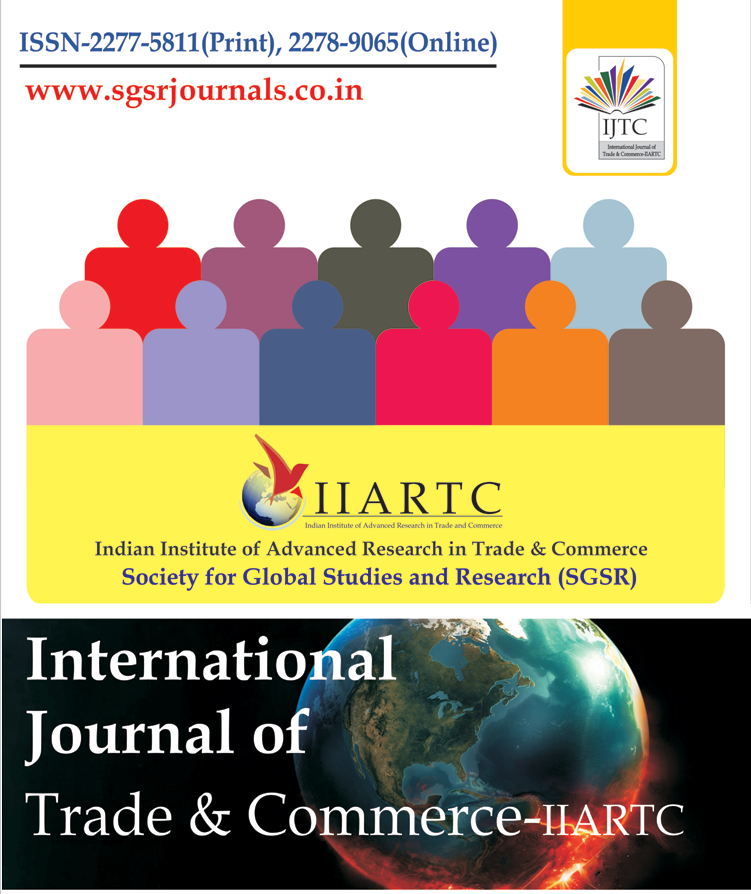Home ⇨ International Journal of Trade & Commerce-IIARTC

International Journal of Trade & Commerce-IIARTC
Impact Factor (IF):5.135 (COSMOS), IF:7.249 (ISRA), IF:3.721 (ISI)
ISSN:2277-5811 (P), ISSN:2278-9065 (O)
Frequency: Half Yearly
Human Resource Management : A Value Based Approach
Nowadays every organization has to compete with its competitors in a competitive market to capture and expand its market share with the objective to win for survival, growth and development. Business has emerged itself as a complex organization with various important components for which strategic management became an important concept. It includes not only determination of strategy but its formulation, implementation and evaluation too. Manpower is the most important component among the five M’s of any organization i.e. manpower, material, machinery, money and methods. Though there are much efforts made to find the most effective way for human resource management but still ancient Indian value based management methods are ignored by the policy makers, so the study of ancient and modern concepts of human resource management is the need of the hour. In this present study analytical research methodology is applied by the researcher. The study finds that human resource management concentrates on four main aspects of HR i.e. acquisition, development, motivation and maintenance, in which later two are more important than the former. There are several strategies for motivation but our Indian ancient philosophy had also explained the value based internal motivational system, where the person feels fresh and enthusiastic so that he can perform his duties effectively and efficiently. The study concludes that it is an emerging need of any organization to formulate such HRM strategies that are depending on Indian philosophical thought too. We should not solely follow the strategies adopted by the Western countries. Organization must consider the fact that organizational welfare and employee’s welfare are inter-related. So for the development of HRM strategies we should consider our own theories which are not only fruitful but value based too.
Author:P. K. Srivastava
Abstract:Nowadays every organization has to compete with its competitors in a competitive market to capture and expand its market share with the objective to win for survival, growth and development. Business has emerged itself as a complex organization with various important components for which strategic management became an important concept. It includes not only determination of strategy but its formulation, implementation and evaluation too. Manpower is the most important component among the five M’s of any organization i.e. manpower, material, machinery, money and methods. Though there are much efforts made to find the most effective way for human resource management but still ancient Indian value based management methods are ignored by the policy makers, so the study of ancient and modern concepts of human resource management is the need of the hour. In this present study analytical research methodology is applied by the researcher. The study finds that human resource management concentrates on four main aspects of HR i.e. acquisition, development, motivation and maintenance, in which later two are more important than the former. There are several strategies for motivation but our Indian ancient philosophy had also explained the value based internal motivational system, where the person feels fresh and enthusiastic so that he can perform his duties effectively and efficiently. The study concludes that it is an emerging need of any organization to formulate such HRM strategies that are depending on Indian philosophical thought too. We should not solely follow the strategies adopted by the Western countries. Organization must consider the fact that organizational welfare and employee’s welfare are inter-related. So for the development of HRM strategies we should consider our own theories which are not only fruitful but value based too.




